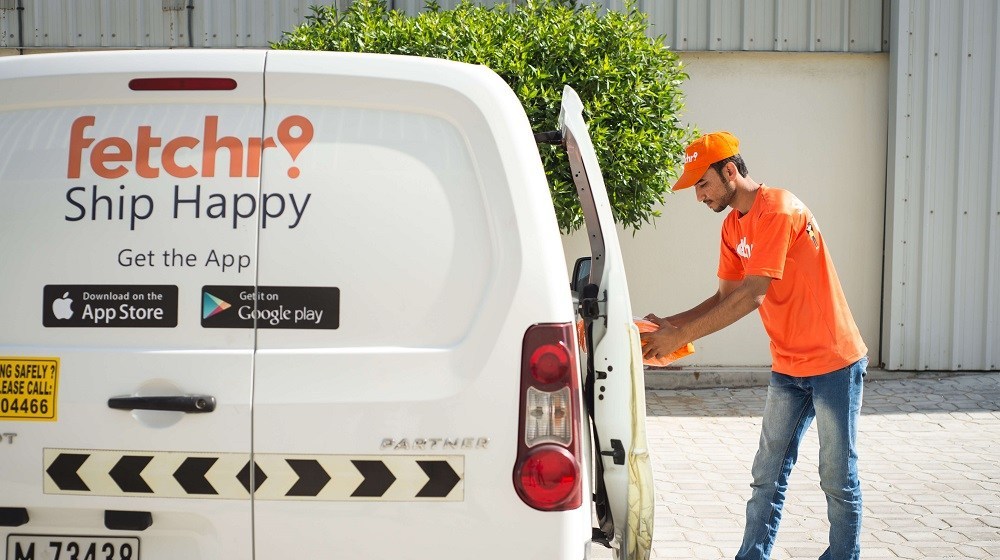Dubai-based logistics startup Fetchr, which was on the verge of bankruptcy last year and was saved by a USD 10 million investment, has secured USD 15 million in fresh funds, Bloomberg reported today. The latest round, according to the documents seen by Bloomberg, includes commitments from the company’s early investor Beco Capital, Saudi-based Tamer Group, and French shipping company CMA CGM, but it still needs the approval of Fetchr’s shareholders.
Fetchr’s interim CEO Mazen Mamlouk confirmed the round’s details with Bloomberg. Fetchr had quietly appointed former UPS executive Hussein Wehbe as its CEO earlier this year, but according to the report, Mazen Mamlouk (who was appointed after the departure of co-founder and CEO Idriss Al Rifai) is still with the company. The report noted that Mazen will soon hand over control to Hussein and will continue to serve the company as an adviser.
Since raising USD 10 million in emergency funding late last year to avoid bankruptcy, Fetchr, the report said, has cut about 1,230 jobs and exited Jordan, Bahrain, and Oman. The new management of the company has helped the company reduce its burn rate.
Read this: Uber launches intercity bus service in Egypt
Fetchr plans to use the latest funds to expand its business in Saudi Arabia. It is one of the six companies that won a parcel delivery license from Saudi’s Communications and Information Technology Commission (CITC) last month. Fetchr is the only company to have received a license for both domestic and international deliveries.
Started in 2012 by Idriss Al Rifai and Joy Ajlouny, Fetchr wanted to solve the no-address problem of emerging markets by letting couriers tap customer’s GPS location through their phones. Initially, it followed an Uber-like model, relying on freelancers to deliver packages to customers on its behalf, but eventually moved to form a fleet with its own drivers—becoming a courier company with tech.
When asked (in a 2017 interview with MENAbytes) if the move will turn Fetchr into a conventional logistics player, Idriss Al Rifai, the company’s co-founder and then CEO, had said that he doesn’t think what defines a logistics company as traditional is the mere fact that it owns or rents cars or trucks. “I believe that the initial hype around outsourced model and the ‘Uber of’ faded down and what matters more now is the economics of the deal, the business model. What we are doing at Fetchr is unique, nobody in the world works on the type of issues or problems we work on both mathematically, operationally, or technically. We are far from being ‘traditional.’”
Having raised over USD 50 million (before raising money to avoid bankruptcy in December 2019), including USD 41 million in Series B (which was one of the largest rounds for a Middle Eastern startup at the time), Fetchr was billed as one of hottest startups in the region. Its Series B round reportedly placed the company at a value close to USD 300 million. But the USD 10 million emergency financing resulted in the value of its existing shareholders’ stakes dilute to nearly zero.
Fetchr’s co-founder and CMO Joy Ajlouny had departed from the company in early 2019. Its co-founder and CEO Idriss Al Rifai left in January and joined Spanish on-demand delivery startup Glovo as its vice president for strategy, data, and new businesses. The former chief operating officer Omar Yaghmour, who left Fetchr in April, joined Dubai-based car servicing marketplace Garaji as their COO earlier this month.
